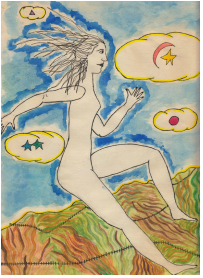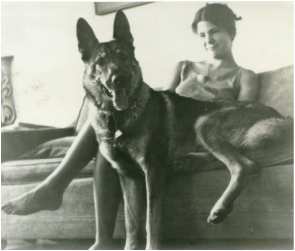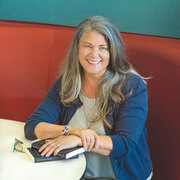 Five years ago I retired, to write a novel. I was so psyched, I actually told people that, lots of people. Big mistake. Some knew I’d waited thirty years for this opportunity. They’d call for updates. Over nonfat lattés, salads, or veggie burgers and fries they would ask to hear all about my amazing second career. “I’m so excited for you! This must feel so great!” “So, when can I expect to see your novel in the bookstores? God, I can’t wait to read it!” “You’re writing a mystery, right? Tell me about it.” I wanted nothing more than to wow them with reports of my meteoric success. But progress was slow. After six months, a year, the calls were less frequent, the questions more hesitant. Over the occasional coffee, brows began to furrow. “Do you have an agent yet?” “Anything I can read yet.” “So, still doing that writing thing?” “Tell me, what exactly do you do all day?” I assured my friends I hadn’t given up, that I was still working on the novel. Then the well-meaning advice began to mount. “You could always volunteer.” “Want to come back to work part time?” “You know, you can always self publish.” “You should talk to my neighbor. He just published a book. It only took him like six months.” “I read about this lady . . . this man . . . you should . . . have you thought about . . . why don’t you . . .” Everyone knew someone who had cranked out a book. It was easy. What was my problem? No one actually said that, but I assumed they wondered. I know I did. It wasn’t for lack of trying. I wrote, spent hours at it, every day. I just wasn’t very good. This is not false modesty. Seriously. I may have had thirty years to refine a mental vision of myself as a successful author, a fantasy where my novels were both popular and important, I mean Pulitzer Prize important, and where I also looked amazing, great hair, goal weight, sharp clothes; but my actual writing skills had atrophied back in my twenties, which was the last time I’d devoted serious time to writing anything beyond rants in my journal about how I never had any time to write. I’d had a successful career, one that hadn’t come easy. Logically, I knew it takes time to get good at anything, even something you love, even something you’d blithely assumed would just happen because, after all, you were meant to do it. So I took classes, signed up for workshops and joined critique groups. And I enrolled in an MFA program. Which, apart from being a great way to learn and practice craft gave me the perfect answer to all those pesky questions. It felt so much better to be able to say I was back in school, earning a graduate degree. For two years I studied fiction and screenwriting, worked with talented writers and connected with supportive writing friends. My thesis was the third iteration of a novel that had morphed a from thinly veiled memoir to a far-fetched murder mystery (more “hippie soap opera” than mystery according to my thesis advisor; unfortunately, he was right) to something I no longer recognized. My final quarter, just before graduation, I took my one and only creative nonfiction class, where I wrote an essay, about my Dad, that I felt pretty good about. I would have drawn it out for several more years to maintain the pretense. But an MFA program isn’t like undergrad. Much as I wanted to cling to the safety blanket and be a perpetual student, I couldn’t. For one thing it’s expensive. It was a great program (The Hottest MFA, UC Riverside Palm Desert). I am a better writer and, perhaps more importantly, a way better self-editor than when I started. But there was no novel at the end. The summer of 2014, I abandoned the final tortured iteration of my hippie soap opera and started on other novel ideas, several of them. I worked on short stories too, thinking it might be easier to complete a collection of linked stories rather than a novel. It wasn’t. Over the last eighteen months I've started a dozen projects and finished next to none, getting 20, 40, 60 pages in before I reached a point where the fiction rang false, where I lost faith. It’s not that I give up easy. I employ a progression of strategies to get back on track. I eat. Or rather I graze until I don’t feel very good. Then I walk until I feel better. I switch from the computer to a notepad or vice versa. I read out loud. I walk circles around the house while reading out loud. I add hand gestures and accents. When none of that works, I go deeper: change the point of view, strip it down to bare bones, lard it up with detail, try a noir version, throw in a dead body to liven the action, begin at the end, or the middle, and on and on. In other words, I edit the hell out of it. When all that fails to get the fiction faucet flowing again, to where I can stomach it, at all, I set the story or novel chapter aside. And I flip through my “idea” notebook for an essay topic. Creative nonfiction has become my palate cleanser, like sorbet. It's my “in between” writing when fiction falls flat. During my breaks, my temporary separations from fiction, I’ve done some personal writing that, at the very least, feels real and doesn’t make me cringe. I’ve written more stuff about my father; about the afternoon I left my first husband, on foot, in the rain, with a quarter and my toddler son in my arms; about the unintended symmetry of three marriages and three children, one a decade, in the 70s, 80s, and 90s; about attending my older sister’s senior prom, at 13, when her two prom dates showed up at our Sunset District front door; and other stuff. I’m doing it now, taking a break from a string of story ideas that dead-ended on me, to write an essay. Watching my daughter put together her college applications has got me thinking about when I was seventeen, and about that year, 1971. Ancient personal history, memories perhaps so eroded they might as well be fiction. Still. It feels like something I can do. I can recall, record, reflect, compare, contrast, edit down and seek the universal. I can learn things. I can be surprised. And perhaps most importantly, for my sanity, I can finish it and call it done. It’s been nearly two years since I graduated with an MFA in fiction. Five years since I retired to write. Over fifty years since I was a little girl with Shirley Temple curls who dreamed of having her name on the spines of a series of “chapter books” like the ones that filled the school library. And I have a confession. I’m not writing those chapter books. I’m not taking a break from fiction. Creative nonfiction isn’t a palate cleanser anymore. It’s become the main course. I am writing memoir. Who knows, maybe even a memoir, bits and pieces of a life, an ordinary life, funny, sad, disappointing and triumphant, perhaps not so unlike linked short stories after all. Stories that I have carried around for years or that are happening right now. From my suburban Sacramento couch, well retired and soon to be an empty nester after thirty-six continuous years of raising kids, I am writing memoir. I’m not saying I won’t write fiction. Someday. But don’t ask me how that novel is coming. It isn’t.
10 Comments
|
Dorothy, author of GRAY IS THE NEW BLACK, blogs about the challenges and opportunities of being a woman and a writer of a certain age in a youth-centric universe.
categories
All
archives
July 2024
|

